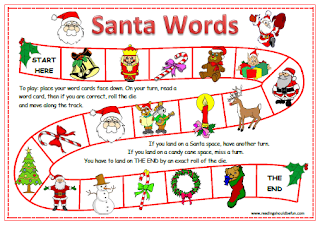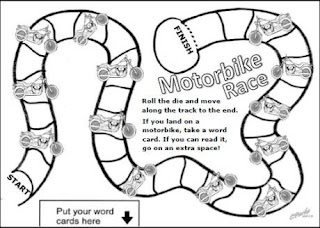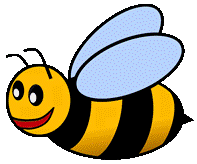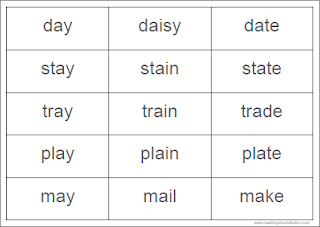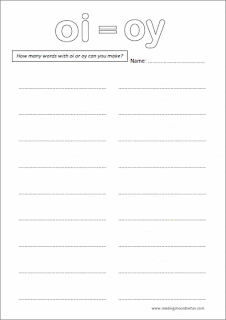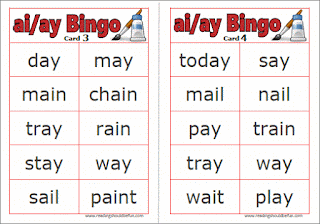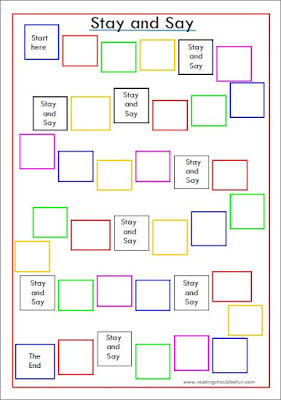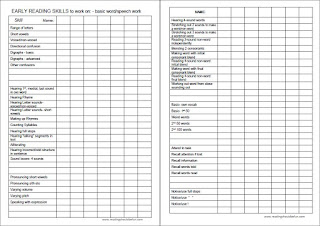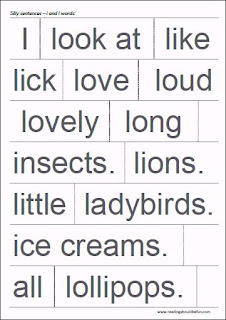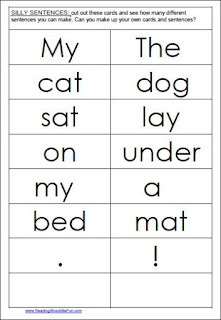The first is a black-and-white version of "Santa Words", which can be cheaply printed/photocopied onto thick paper for children to take home over the holidays and colour in.
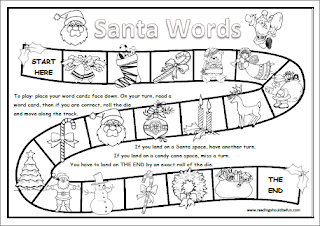
Santa Words B&W printable game
"Santa's Helpers" is another fun game for Sight Words practice:
Santa's Helpers col. Printable Reading Game
These games are best printed onto A4 size light card; they can be laminated before use.
They will also need "Sight Words' cards (these can be words written on small pieces of card) a die/dice or spinner, and small tokens or 'movers' (buttons, small pieces of coloured card etc).
The games will be available for free download (for educational, non-commercial use) during the rest of December and the beginning of January.
As it's getting near the end of December, I thought I should also add links to
some of my free Christmas activities on my other websites…
Christmas computer Jigsaws,
clipart - http://www.epuzzled.net/holidayfun.htm
Christmas songs (also links to
clipart, eCards) - http://www.cathyschords.com/christmassongs.htm
These song sheets have lyrics and chords for guitar;
there are also some song sheets on the site for ukulele and banjo.
there are also some song sheets on the site for ukulele and banjo.
Christmas games – Santa Snatch, Santa Swap http://www.free-fun-n-games.com/funstuff.htm
These games are lots of fun for a
Christmas gathering – they don’t need expensive gifts, and are suitable for all
age groups. I wish everyone a happy and safe holiday season... I will be back next year with more ideas and resources for teaching reading.


